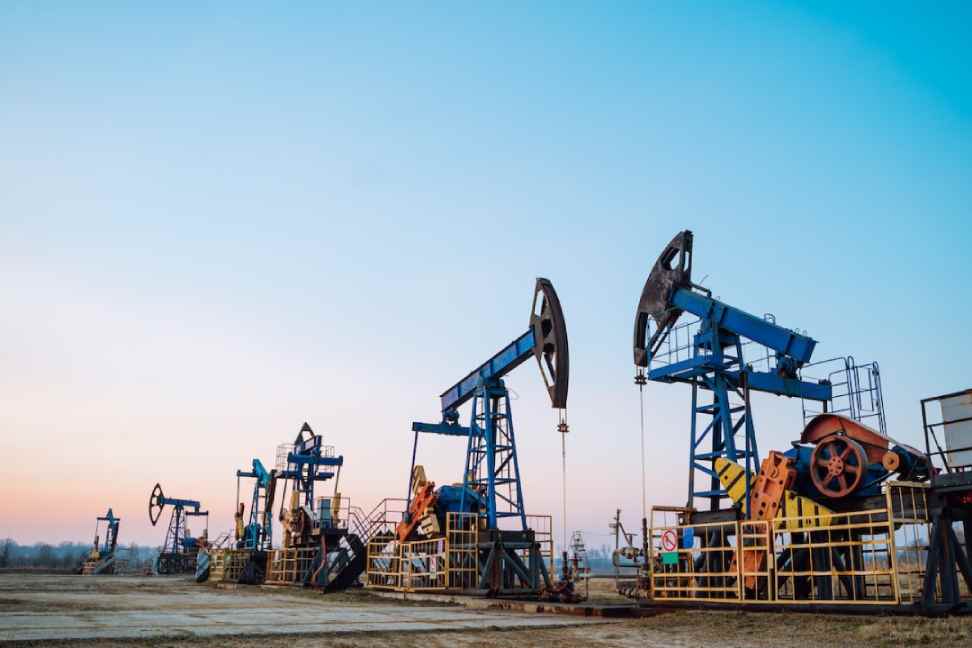The lifeblood of the modern world, oil and gas, flows through intricate networks of pipelines, unseen yet vital infrastructure sustaining economies and powering everyday lives. But before venturing into this dynamic sector, ask yourself: Is a career in oil and gas transmission a good fit for you?
Unveiling the Opportunities
The oil and gas transmission industry holds several potential rewards for a fulfilling career:
- Stability and Security: With reliable demand for energy, stable companies, and competitive salaries, this industry offers a sense of security and financial stability for many. Benefit packages and career progression opportunities add to the appeal.
- Technical Challenges: Embrace complex engineering problems, intricate pipeline design, and cutting-edge technologies like automation and remote monitoring. This field constantly seeks innovative solutions, keeping your mind stimulated.
- Diverse Roles: Explore various options beyond engineering, from construction and maintenance to data analysis, customer service, and environmental compliance. Find your niche based on your skills and interests.
- Global Reach: Work on projects spanning continents, collaborating with international teams, and experiencing diverse cultures. Travel opportunities broaden your perspective and offer unique career experiences.
- Community Impact: Contribute to vital infrastructure that powers economies, fuels essential services, and improves lives globally. Feel the satisfaction of knowing your work has a tangible impact.
Facing the Reality Check
While the prospects are promising, it’s crucial to understand the industry’s realities:
- Demanding Environment: Long hours, especially during construction or emergencies, physical exertion in diverse weather conditions, and potential relocation for projects are commonplace. Be prepared for a challenging yet rewarding work environment.
- Environmental Concerns: The industry faces criticism regarding its environmental impact. Consider your personal values and comfort level with working in a sector undergoing scrutiny and seeking sustainable solutions.
- Fluctuations in Demand: Market fluctuations and changes in energy consumption can affect job security in certain segments. Research current and future trends to make informed decisions.
- Safety Risks: Working with pressurized pipelines and hazardous materials demands strict safety protocols and a strong safety culture. Adherence to safety regulations and risk mitigation measures is crucial.
- Potential for Limited Upward Mobility: Depending on the specific role and company, advancement opportunities might be limited compared to other technology sectors. Research growth potential within your chosen path.
Finding Your Fit
So, is a career in oil and gas transmission right for you? Carefully consider these factors:
- Skills and Interests: Do you enjoy math, science, and problem-solving? Are you physically fit and comfortable working outdoors in different weather conditions? Do you possess strong teamwork and communication skills? Aligning your strengths with the demands of the job is key.
- Lifestyle Preferences: Can you handle long hours, potential relocation, and physically demanding work? Consider your desired work-life balance and flexibility needs.
- Environmental Values: Are you comfortable working in an industry facing environmental concerns? Research the industry’s sustainability efforts and your personal alignment with its practices.
- Career Aspirations: Do you envision a long-term career in this field, or is it a stepping stone to other engineering or technical fields? Identifying your goals will help you choose a path with suitable growth opportunities.
Charting Your Course
If you’re drawn to the oil and gas transmission industry and believe it aligns with your strengths and aspirations, take these steps to navigate your path:
- Explore Different Roles: Research diverse career options within the industry, from engineering and construction to data analysis, operations, and regulatory compliance. Find a role that aligns with your skills and interests.
- Network and Seek Mentorship: Connect with professionals in the industry, gain insights into their experiences, and seek guidance from mentors who can provide valuable advice and support.
- Build Your Skillset: Strengthen your academic foundation in STEM subjects, consider relevant internships or training programs, and pursue certifications specific to the oil and gas industry to enhance your employability.
- Stay Updated: Follow industry trends, technological advancements, and environmental regulations through publications, conferences, and online resources. Staying informed demonstrates your passion and keeps you competitive.
Beyond the Pipeline
While the core pipeline operations offer diverse opportunities, consider exploring alternative paths within this extensive sector:
- Renewable Energy Integration: Be at the forefront of integrating renewable energy sources like solar and wind into existing infrastructure, contributing to a more sustainable future.
- Cybersecurity: With reliance on digital systems increasing, cybersecurity experts are crucial for protecting pipelines from cyber threats. If you possess technical and analytical skills, this emerging field offers exciting challenges.
- Public Policy and Advocacy: Shape the future of the industry by working on policy issues related to regulations, environmental impact, and energy security. If you possess strong communication and analytical skills, this path allows you to influence the industry from a broader perspective.
Remember, the oil and gas transmission industry is not monolithic. It offers diverse career paths catering to various skillsets and interests. By carefully considering your personality, priorities, and future goals, you can determine if this critical yet complex sector aligns with your aspirations.
Embrace the challenges, leverage the opportunities, and discover your unique place within this evolving infrastructure. With dedication, resilience, and a commitment to responsible practices, you can embark on a rewarding career that contributes to both economic stability and responsible energy solutions.
Read Also:
- How Many Jobs Are Available In Edp Services?
- How Many Jobs Are Available In Consumer Services?
- How Many Jobs Are Available In Consumer Durables?

